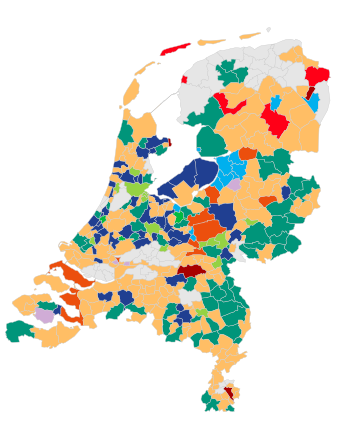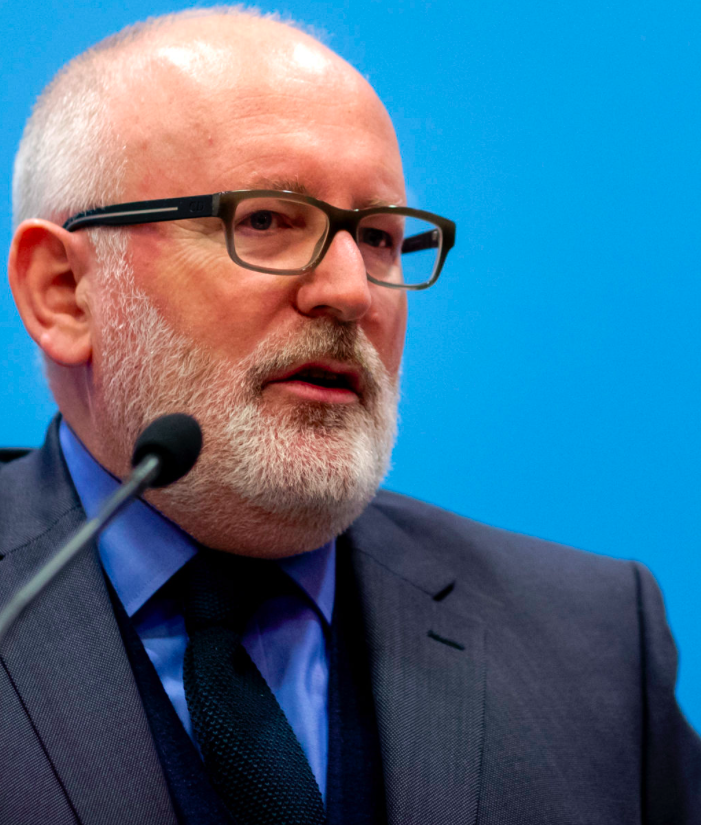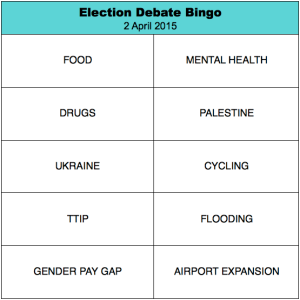Participatief besluiten gaat niet meer weg; de kunst is om er gevoel voor te ontwikkelen, wat ik hier het participatiezintuig noem.

Heel geleidelijk is participatie – in het bijzonder die van burgers – een steeds belangrijker onderdeel aan het worden van besluitvormingsprocessen. Je ziet het bijvoorbeeld aan de Omgevingswet, die bepaalt dat straks omwonenden en belanghebbenden meebeslissen over wat er gebeurt met hun leefomgeving. Ook zien we een sterke opkomst van burgerberaden, waar door loting bijeengebrachte burgers gezamenlijk aan oplossingsrichtingen voor grote maatschappelijke kwesties werken.
Als je kijkt naar participatie en je wilt het huidige moment duiden, dan zou ik zeggen dat we het tijdperk aan het afsluiten zijn waarin participatie van burgers en belanghebbenden iets was om erbij te doen, als extraatje of experiment, omdat er wat tijd en geld over was, of om een mooie strik te hebben om een besluit te verpakken. Het tijdperk dus, waarin het mogelijk – en gebruikelijk – was om een besluitvormingsproces te hebben waarin degenen die met het besluit moesten leven geen enkele rol hadden. Het tijdperk dat we aan het betreden zijn, is er een waarin participatie in besluitvorming vanzelfsprekend is voor iedereen. Natuurlijk staan we nog aan het begin, maar afgaande op ontwikkelingen in binnen- en buitenland, zit eindelijk de vaart erin.
Het wordt niet vanzelf een succes. De beweegrichting is duidelijk, de bestemming bestaat nog niet. Die moeten we gaandeweg vormgeven, als burgers en als professionele besluitvormers. Op dit soort momenten is het cruciaal dat degenen die positief staan tegenover de verandering er aanjagers van worden. De prachtige Engelse term prefigure komt in me op: het vooruitlopen op een wenselijke toekomstige ontwikkeling en handelen alsof die ontwikkeling er al is. En dat hoeft helemaal geen politiek-activistische aangelegenheid te zijn, integendeel. De sleutel om een toekomst vorm te geven waarin participatief besluiten vanzelf spreekt, en goed werkt, schuilt juist in onze dagelijkse praktijk.
We doen het al op talloze andere manieren, prefigureren. We wachten niet tot overheden en producenten voor ons bepalen dat we onze ecologische voetafdruk verkleinen, we ondernemen zelf actie door duurzamere producten te gebruiken. We voeden onze kinderen op om veel fijnzinniger te zijn over diversiteit dan onze eigen generatie, om daarin in zekere zin ook voorlopers te zijn. Die insteek kunnen we in ons denken en handelen over participatie ook kiezen. De kans is groot dat we onszelf daar een belangrijke dienst mee bewijzen. Stel je voor dat we wachten totdat, ik noem maar wat, het volgende kabinet gaat inkleuren hoe we participatief gaan besluiten. Precies.
Nu gebeurt er om ons heen natuurlijk al heel veel. In kringen van ruimtelijke ordening, klimaat en energie worden er volop nieuwe participatieve besluitvormingsprocessen ontworpen en ook elders is er beweging. Wil je als professional meer leren over de wettelijke voorschriften om besluitvorming participatiever te maken, of de methoden die je kunt toepassen, dan is er hoef je niet lang te zoeken om een cursus te vinden. Het onderstreept eens te meer hoezeer het belang van participatie groeit. Maar, en nu komen we bij dat idee van prefigureren en dat participatiezintuig, ik vraag me af of we onszelf niet verder moeten uitdagen om tot een dieper begrip te komen van wat participatie betekent, hoe het kan werken, en waar het aan zou moeten voldoen. Voor mijn gevoel zijn we er nog lang niet – en dat geldt ook voor mijzelf.
Waar dan niet? Wel, om de wereld te kunnen bekijken door een participatieprisma, zoals sommigen als vanzelf de wereld kunnen zien door een financiële bril, of uit het perspectief van kindveiligheid. Participatie niet langer benaderen als een instrument dat in een bepaald vakje hoort, maar het zien als een dimensie die op bijna alles van toepassing kan zijn. Om daar te komen, moeten we in eerste instantie vooral vragen stellen, aan onszelf en aan elkaar. Vragen die over meer gaan dan alleen het hoe en wat van participatief besluiten, bijvoorbeeld over democratie en over inclusie. Zo kunnen we geleidelijk meer perspectieven gaan zien, meer geluiden gaan horen, participatie gaan voelen. Dat is waar ik aan denk als ik het heb over het ontwikkelen van een participatiezintuig.
Hoe meer mensen er zin hebben om de diepere lagen aan te boren die ons kunnen helpen om participatie vollediger en instinctiever te begrijpen, hoe spannender de toekomst van participatieve besluitvorming wordt. Ik hoor graag van eenieder die net als ik zoekt naar meer, nieuwe, andere vragen – en die net als ik hun participatiezintuig willen ontwikkelen.















 64 miles It is a long and beautiful descent into the valley of the River Ystwyth, a much deeper and narrower valley than the one I have just left behind. The road stays level with the river for a couple of miles, then climbs again. At a fork in the road, shortly after Cwmystwyth, the route departs from the main road and descends into woodland, using a gravel track. Signage is lacking in much of the wood section, although the various paths seem to all eventually lead to the same road, which if taken in the right (westerly) direction becomes Route 81 again.
64 miles It is a long and beautiful descent into the valley of the River Ystwyth, a much deeper and narrower valley than the one I have just left behind. The road stays level with the river for a couple of miles, then climbs again. At a fork in the road, shortly after Cwmystwyth, the route departs from the main road and descends into woodland, using a gravel track. Signage is lacking in much of the wood section, although the various paths seem to all eventually lead to the same road, which if taken in the right (westerly) direction becomes Route 81 again.




Over Brexit – in Dutch
Tweeënhalf jaar van naweeën van het Britse EU referendum hebben mij geleerd dat niets aan Brexit simpel is.
Mede, of misschien vooral, door toedoen van de schreeuwmedia hier is de kloof die zich op 24 juni 2016 openbaarde volop uitvergroot en uitgebuit, waardoor het nu min of meer normaal is voor burgers om hun referendumvoorkeur te zien als een onderdeel van hun wezen.
De lijnen waarlangs het debat zich afspeelt vertonen enige gelijkenis met die van etnische dan wel religieuze conflicten: het verheerlijken van een historische gebeurtenis (het referendum), het wantrouwen van de ander en de waarachtigheid van diens argumenten, en het ondergeschikt maken van andere overwegingen aan die van het winnen van het grondconflict. De redelijkheid is het kind van de rekening en argumenten worden vaker gewonnen op basis van loyaliteit dan op basis van waarde.
Niets te winnen
De tragiek is dat er helemaal niets te winnen valt. Het is breeduit gedocumenteerd dat er voor een Verenigd Koninkrijk buiten de EU bijzonder weinig hoop gloort om op welke wijze dan ook een betere natie te worden. Evenzeer biedt een uitkomst waarbij Brexit wordt afgelast op zichzelf niets inspirerends: het is terug bij af, minus de schade die in het proces is opgelopen.
Intussen hebben alle hoofdrolspelers hun eigen agenda’s, en Brexit heeft het hele politieke firmament vloeibaar gemaakt. Juist omdat Brexit zelf niets te bieden heeft, gaat het de politici om andere zaken, waar ze via het winnen van de slag om Brexit aan toe hopen te komen. Als ik het mag oversimplificeren, Theresa May wil van het VK een gesloten fort maken, Jeremy Corbyn wil een socialistische regering, de Brexiteers willen samen met hun zakenvriendjes de Britse rijkdommen verdelen en elkaar elke dag feliciteren met hun macht. En een paar rekeningen verheffen met Ierland.
Volksverraad
In de context van dit alles, waar sta je dan als een politicus of burger die een redelijke uitweg nastreeft – een oplossing die recht doet aan de belangen en voorkeuren van zo veel mogelijk mensen? Dat zo’n oplossing waarschijnlijk neerkomt op het instandhouden van een nauwe samenwerking met de EU stelt je al meteen voor een probleem, omdat een dergelijke suggestie door de schreeuwmedia meteen wordt weggezet als volksverraad – en politici, vooral die in de regering, zijn erg gevoelig voor wat deze media roepen.
Bovendien heb je een smet indien je op enig moment tegen Brexit hebt geargumenteerd – daarmee heb je je vereenzelvigd met de elite, en wie wil er in 2019 nou nog naar de elite luisteren? Zeg je nu en dan redelijke dingen, dan heb je ook nog eens het probleem dat de aarts-remainers je tot mascotte voor hun heilige strijd verheffen, waarmee je kansen op een dialoog met lieden aan de Brexit-zijde zijn verdampt.
Can of worms
Etnische en religieuze conflicten hebben de gewoonte om generatieslang door te etteren, tot een moment waarop geen van de betrokkenen nog weet heeft van de wortels van het conflict, alleen maar de zekerheid dat het eigen wezen en de eigen groepsverbanden hun kracht ontlenen aan de aanwezigheid van het conflict. Het zou dus kunnen dat we in het VK nog vele jaren bakkeleien over de EU, hoewel de huidige jonge generaties in grote meerderheid tegen Brexit zijn en het verwacht mag worden dat hun invloed geleidelijk zal toenemen.
De vraag is of er tegen de tijd dat de huidige machthebbers plaatsmaken voor een nieuwe generatie nog een open debat kan plaatsvinden, of dat er zoals in bijvoorbeeld Noord-Ierland (of, zeg, het Europese landbouwbeleid) een soort kunstmatig evenwicht wordt bereikt waarbij de geringste verandering het fundament onder het hele bouwwerk wegslaat. Wat in goed Brits ook wel ‘a can of worms’ heet.
Leave a comment
Posted in Commentary, Democracy
Tagged Brexit, Dutch, EU, Nederlands, Politiek